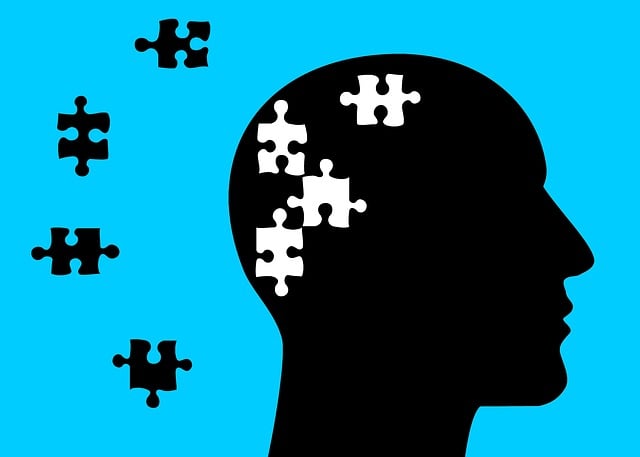Mental health policies, exemplified by Longmont, Colorado's adoption of Dialectical Behavioral Therapy (DBT), significantly improve care accessibility and quality for individuals facing mental health challenges. DBT, effective for trauma and mood disorders, equips clients with coping skills through cognitive-behavioral techniques and mindfulness practices. This holistic approach integrates trauma support and fosters community building, enhancing well-being outcomes. By combining evidence-based practices like Longmont DBT with cultural sensitivity, mental health policies drive public awareness, reduce stigma, and promote early intervention for a healthier, more resilient community.
Mental health policy analysis and advocacy are vital components in fostering comprehensive care systems. This article delves into two key aspects: understanding mental health policy and its far-reaching impact, and exploring the role of specialized treatments like Longmont Dialectical Behavioral Therapy (DBT) in driving effective advocacy.
We’ll uncover strategies for successful policy analysis, highlighting the importance of evidence-based practices, community engagement, and collaboration to shape policies that improve access to quality mental healthcare.
- Understanding Mental Health Policy and Its Impact
- The Role of Longmont Dialectical Behavioral Therapy (DBT) in Advocacy
- Strategies for Effective Mental Health Policy Analysis and Advocacy
Understanding Mental Health Policy and Its Impact

Mental health policies are crucial frameworks that shape the availability and accessibility of support services for individuals facing various mental health challenges. These policies influence everything from funding allocation to service delivery models, ultimately impacting the quality of care. In the context of Longmont, Colorado, the integration of Dialectical Behavioral Therapy (DBT) within public healthcare systems exemplifies policy advocacy in action. DBT, known for its effectiveness in treating complex trauma and mood disorders, empowers individuals with valuable coping skills, fostering improved mental well-being.
The impact of robust mental health policies is far-reaching, as they contribute to increased public awareness campaigns aimed at reducing stigma and encouraging early intervention. Organizations can leverage policy changes to develop and implement Stress Management Workshops, offering essential tools for anxiety relief and overall stress mitigation. By addressing these issues at a systemic level, Longmont’s proactive mental health policy initiatives not only benefit individuals but also contribute to the development of a resilient community.
The Role of Longmont Dialectical Behavioral Therapy (DBT) in Advocacy

Longmont Dialectical Behavioral Therapy (DBT) plays a pivotal role in mental health advocacy by offering evidence-based strategies that empower individuals to navigate life’s challenges more effectively. This therapeutic approach, originally developed for treating borderline personality disorder, has expanded its reach to address a broader spectrum of mental health concerns. DBT combines cognitive-behavioral techniques with mindfulness practices, fostering self-esteem improvement and teaching individuals valuable skills for self-care routine development.
By integrating trauma support services within the framework of DBT, therapists create a safe space for clients to process and heal from past traumas. This holistic approach recognizes that mental well-being is deeply interconnected with physical, emotional, and social aspects of life. Through group sessions and individual therapy, Longmont DBT facilitates peer support and fosters a sense of community, enhancing the overall advocacy effort for better mental health outcomes in the region.
Strategies for Effective Mental Health Policy Analysis and Advocacy

Mental health policy analysis and advocacy require a multifaceted approach to effectively address the complex needs of individuals seeking support. One powerful strategy is to integrate evidence-based practices, such as Longmont Dialectical Behavioral Therapy (DBT), into mental healthcare systems. DBT, with its focus on skills training for emotion regulation, distress tolerance, and interpersonal effectiveness, can significantly improve outcomes for those dealing with depression, anxiety, and borderline personality disorders. By integrating these therapeutic modalities, policymakers can ensure that treatment plans are comprehensive and tailored to individual needs.
Additionally, cultural sensitivity in mental healthcare practice plays a pivotal role in policy advocacy. Recognizing the impact of cultural background on mental health experiences, treatment preferences, and communication styles is essential. Incorporating culturally competent approaches ensures that services are accessible, respectful, and effective for diverse populations. This involves training mental health professionals to adapt their practices to different cultural contexts, fostering an environment where self-esteem improvement and positive thinking can flourish. Such strategies not only enhance patient satisfaction but also contribute to better long-term outcomes in mental healthcare.
Mental health policy analysis and advocacy are essential components of creating a supportive societal landscape. By understanding the impact of mental health policies, such as those influenced by Longmont Dialectical Behavioral Therapy (DBT) techniques, we can develop effective strategies to enhance access to care and improve outcomes. This article has highlighted the importance of advocacy in shaping policies that address mental health challenges. Through rigorous analysis and utilizing evidence-based practices like DBT, advocates can drive meaningful change, ensuring that individuals receive the necessary support for their well-being.














